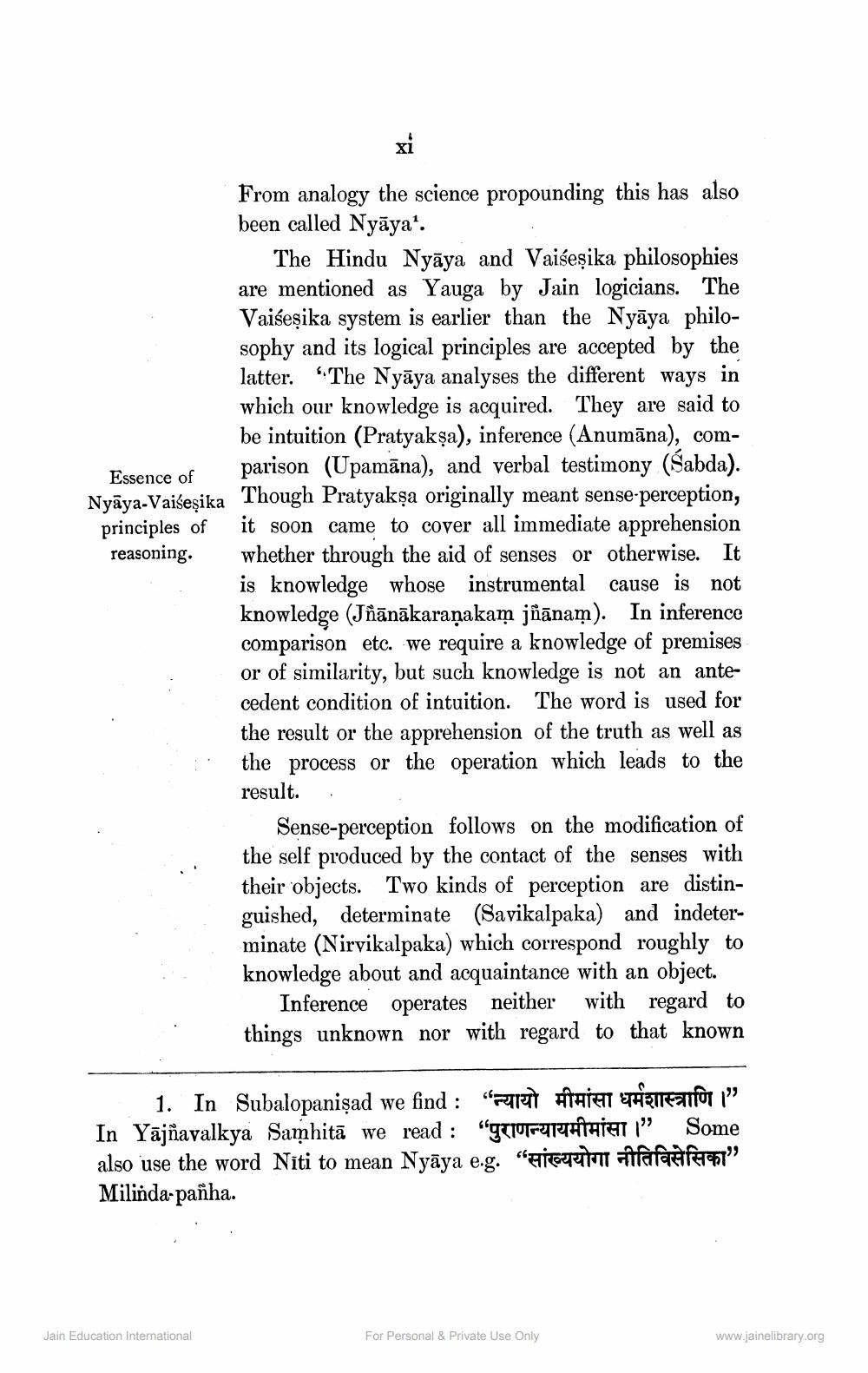________________
From analogy the science propounding this has also been called Nyāya'.
The Hindu Nyāya and Vaiseșika philosophies are mentioned as Yauga by Jain logicians. The Vaišeșika system is earlier than the Nyāya philosophy and its logical principles are accepted by the latter. "The Nyāya analyses the different ways in which our knowledge is acquired. They are said to
be intuition (Pratyakşa), inference (Anumāna), comEssence of parison (Upamāna), and verbal testimony (Sabda). Nyāya-Vaisesika Though Pratyakşa originally meant sense perception, principles of it soon came to cover all immediate apprehension reasoning. whether through the aid of senses or otherwise. It
is knowledge whose instrumental cause is not knowledge (Jñānākaraṇakam jñānam). In inference comparison etc. we require a knowledge of premises or of similarity, but such knowledge is not an antecedent condition of intuition. The word is used for the result or the apprehension of the truth as well as the process or the operation which leads to the result. .
Sense-perception follows on the modification of the self produced by the contact of the senses with their objects. Two kinds of perception are distinguished, determinate (Savikalpaka) and indeterminate (Nirvikalpaka) which correspond roughly to knowledge about and acquaintance with an object.
Inference operates neither with regard to things unknown nor with regard to that known
1. In Subalopanişad we find : 17 ATHTET HEEFT for 1" In Yājňavalkya Samhitā we read : "OTTOTETTATHIATI” Some also use the word Niti to mean Nyāya e.g. "HIGIT fara af 7" Milinda-panha.
Jain Education International
For Personal & Private Use Only
www.jainelibrary.org




